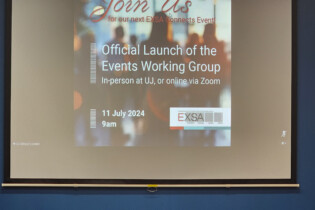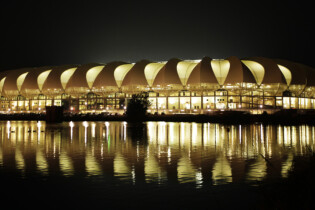 “If you don’t know where you’re going, you will probably end up somewhere else.” – Dr Laurence J Peter
“If you don’t know where you’re going, you will probably end up somewhere else.” – Dr Laurence J Peter
Events are expensive undertakings whether in research, suppliers, services, time putting it all together as well as many attendees out-of-the-office with high expectations to name but a few that impacts on the bottom-line. The financial outlay both direct and indirect can be virtually never-ending. Hence even more so than ever – the conceptual side of all events should be both understood and indeed undertaken – without exception.
Although it could be argued that the extent of conceptual planning differs dependent on whether the event is: (a) corporate undertaking of various types and capacities (b) association event whether annual or ongoing varying gatherings or (c) government parastatal or SOE at a variety of levels throughout any given year – the need for the basic rules remain the same.
Ongoing Knowledge Updates
To simplify the conceptual process – an astute planner or planning team needs to have ‘an ear to the ground’ regarding any hard facts both within the industry such as: suppliers and services ability to deliver as well as new product offerings. External to the industry are the possible trends which may impact both positively and negatively on an event such as: tried and tested communication techniques, security risks within specific areas and the like.
Below are the barest minimum questions requiring answers within the conceptual planning process before proceeding any further. Thereafter dependent on the answers – the questions may need to be adjusted. Yet answers – and taking heed of the answers – are paramount – which must be recorded within the Service Level Agreement (SLA)
- Has this event or a similar event been undertaken before?
*Important to know whether there is any track record or precedent which has been established.
- If affirmative, what were the outcomes?
*This information could make or break the way forward.
- What do we want to achieve and the focussed audience level/s?
*This is next which is the objectives – having established 1 & 2 where affirmative
- What are the most appropriate programme formats in order to achieve the objectives?
*Plenary, Break-away, Fire-side Focus, Conversations, Panels, Team-builds etc.
- What is the evaluation process to be employed as to whether we have achieved the objectives?
*Evaluation method must be decided following objective-setting – not at the end.
- When should the event be undertaken together with the best event duration?
*Dependent on the group dynamics between the prime sectors will determine timing.
*More lead time…..produces better results.
- How should the event be designed in order to ensure the brand/s are depicted effectively?
*Essential in conceptual planning based on the set objectives.
- What message retention techniques should be considered such as: entertainment, professional presenter and the like to enhance and ensure greater objective outcomes?
*Ditto No. 7
- Where should the event be undertaken in keeping with the items 1. to 9?
*A serious failing is selecting the venue prior to items 1 to 8 has been captured.
- What type and number of additional personnel are required in keeping with the written SLA?
Once these ten items have been completed and committed to written format – then the budget kicks-in incorporating either the number of attendees or break-even attendee requirement.
Avoid ‘jumping the gun’ and starting with the logistics as the outcome could be a serious waste of time, money and indeed reputation with a highly reduced ROI.
* Helen Brewer from The MICE Academy, is an independent contributor and articles do not necessarily reflect the opinions and views of The Planner.





